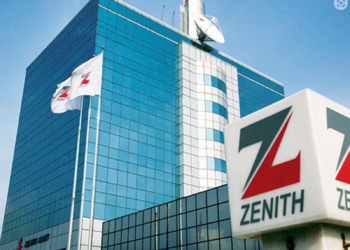The National Insurance Commission (NAICOM) has called for regional insurance collaboration to bridge climate finance gap in West Africa.
NAICOM emphasised that integrating insurance into national economic planning is one of the most effective strategies for managing climate risks and strengthening economic resilience across the region.
Delivering his keynote address at the 2025 West Africa Insurance Companies Association (WAICA) Education Conference held in Lagos on Monday, the Commissioner for Insurance and Chief Executive Officer of NAICOM, Mr. Olusegun Omosehin, urged insurers, reinsurers, and regulators across West Africa to adopt innovative solutions and deepen regional cooperation in creating financial products that respond effectively to climate realities in the sub-region.
“To my colleagues across WAICA member states — insurers, reinsurers, and industry leaders — this is a call to action,” he said.
“We must innovate boldly, developing parametric and microinsurance products tailored to our region’s climate realities.”
Traditional budgetary approaches no longer sufficient
He said traditional budgetary approaches were no longer sufficient to tackle the growing economic and social disruptions caused by climate change.
“Like many other African countries, Nigeria faces a significant climate finance gap. Traditional budgetary responses are no longer sufficient,” Omosehin said.
“We must strengthen financial instruments that allow us to anticipate shocks rather than merely react to them. When integrated into national planning, insurance becomes one of the most effective tools of climate risk management and economic resilience.”
Investing in data
The NAICOM boss further stressed the importance of investing in data, technology, and climate modelling to improve risk assessment and product development. He called for regional collaboration to pool risks and resources, making insurance more accessible to vulnerable populations.
“We must collaborate across borders, pooling risks and resources to build regional resilience. We must also expand inclusion to ensure that insurance reaches farmers, market women, artisans and micro-entrepreneurs who form the backbone of West African economies,” Omosehin added.
Nigeria’s reform agenda for a resilient insurance sector
Highlighting Nigeria’s policy strides, Omosehin noted that the Federal Government had taken significant steps to strengthen the sector through the Nigeria Insurance Industry Reform Act (NIIRA) 2025, which modernises the regulatory framework and enhances financial stability within the industry.
He explained that the Act introduces stronger capital requirements, expands compulsory insurance classes to cover agricultural and environmental risks, and promotes public-private partnerships to support infrastructure and climate resilience.
“These reforms are not merely technical; they are foundational to our national preparedness and long-term sustainability,” he said.
Omosehin stressed that addressing climate-related risks requires a unified regional approach that blends regulation, innovation, and partnership among governments, private sector players, and development institutions.
“Climate change does not respect borders. Its impacts are felt everywhere — in every nation, every community, and every sector. Just as rain falls on many roofs, so too must our response be collective,” he noted.
What you should know
- In August, Nairametrics reported that President Bola Ahmed Tinubu has signed into law the Nigerian Insurance Industry Reform Act (NIIRA) 2025, a transformative piece of legislation aimed at modernizing Nigeria’s insurance sector and accelerating the country’s journey toward a $1 trillion economy.
- The Act introduces sweeping reforms in the form of stringent capital requirements, compulsory insurance enforcement, and digitization mandates.
- The NIIRA 2025 empowers the National Insurance Commission (NAICOM) to regulate and supervise all insurance and reinsurance businesses operating within Nigeria.
It introduces a series of reforms designed to strengthen consumer protection, attract investment, and improve operational efficiency.





















